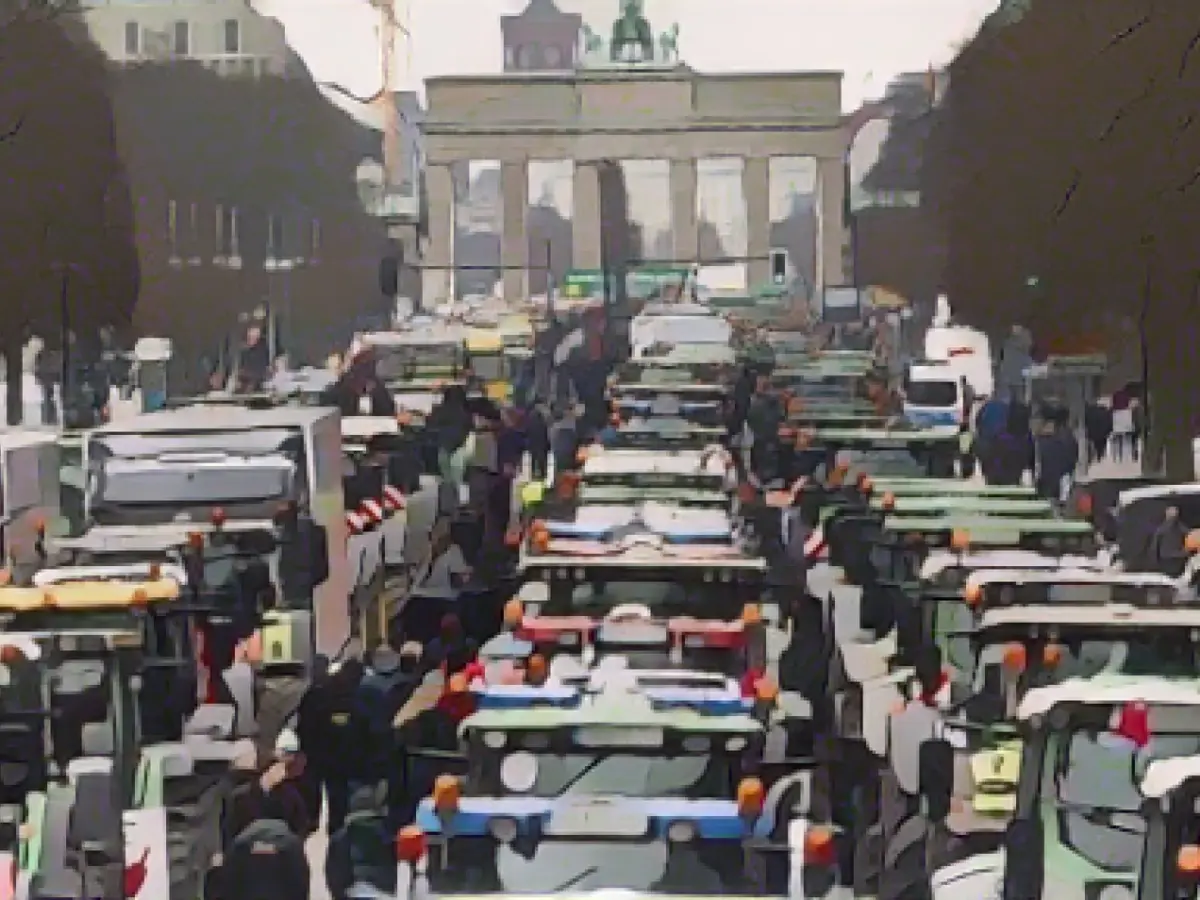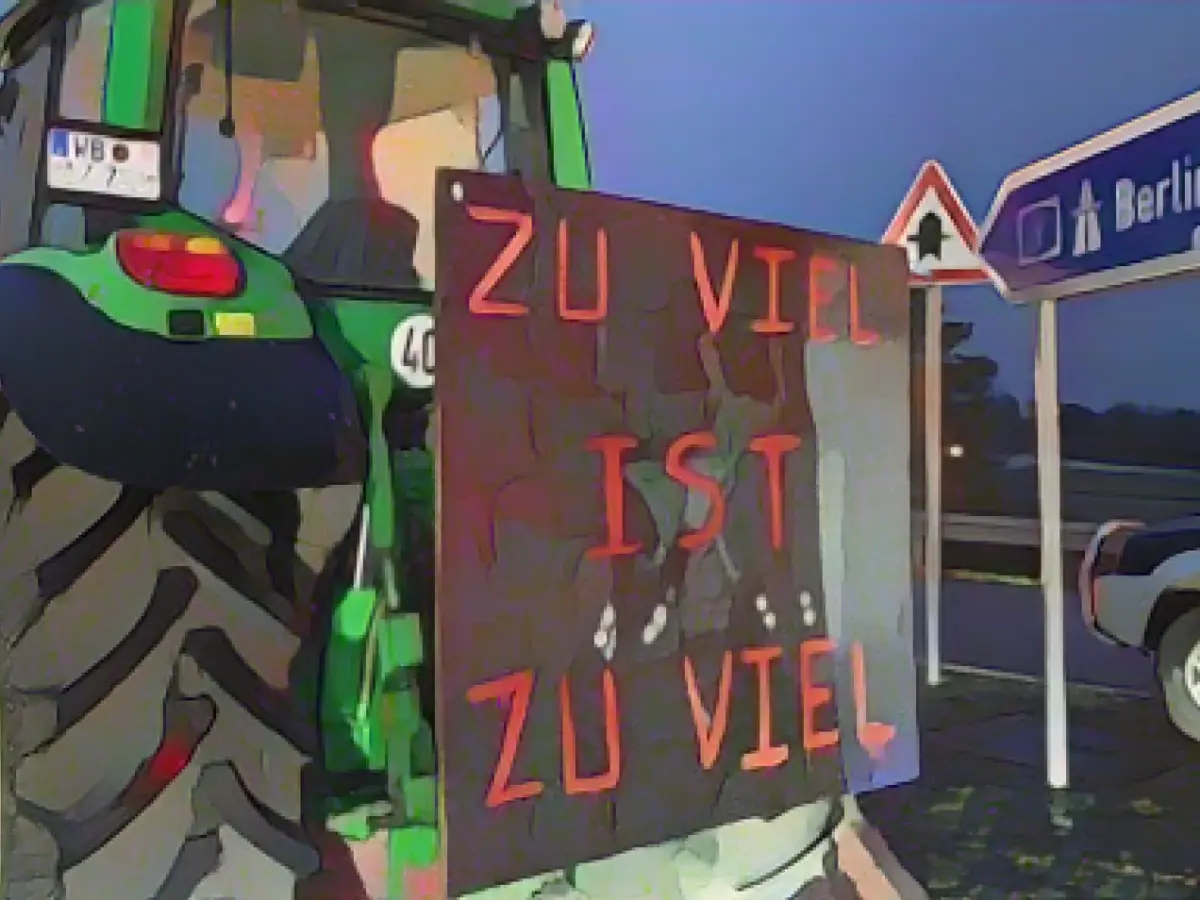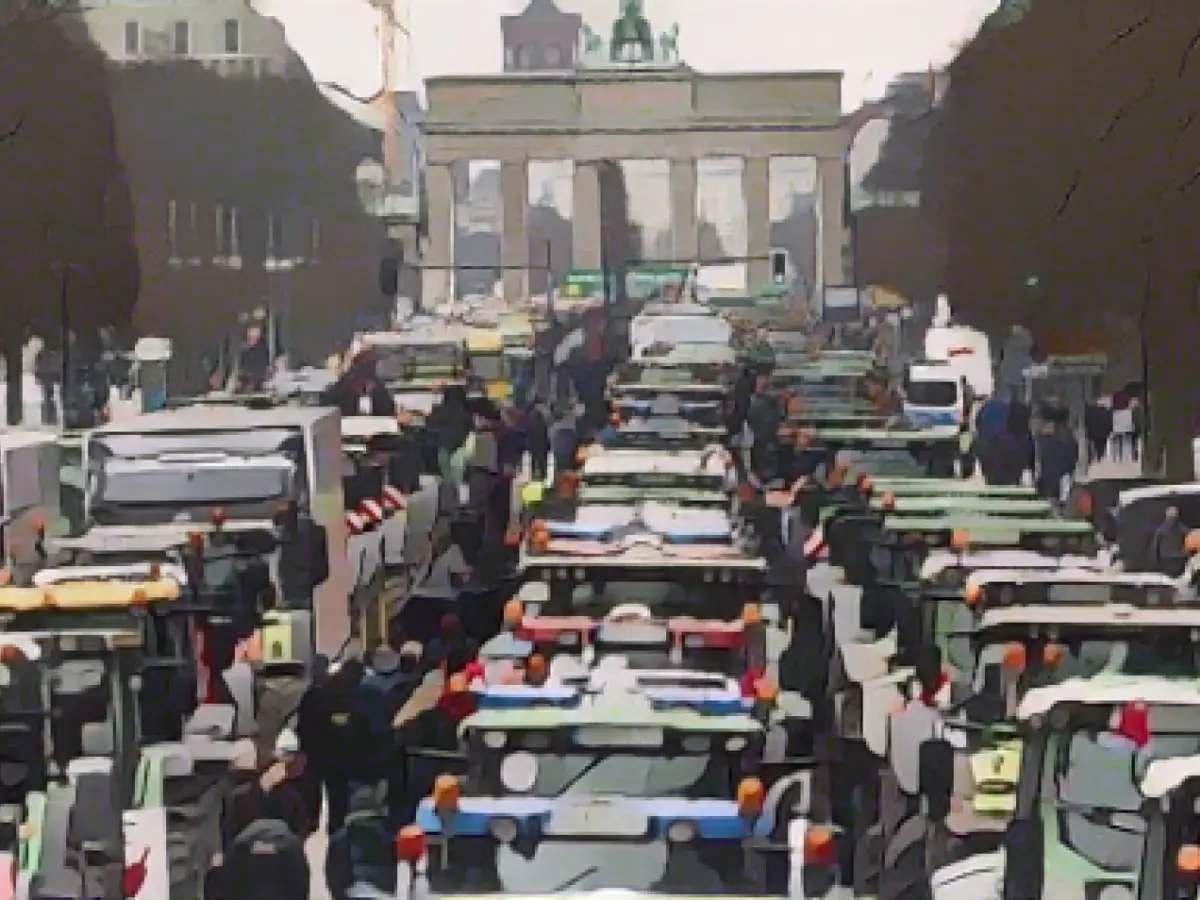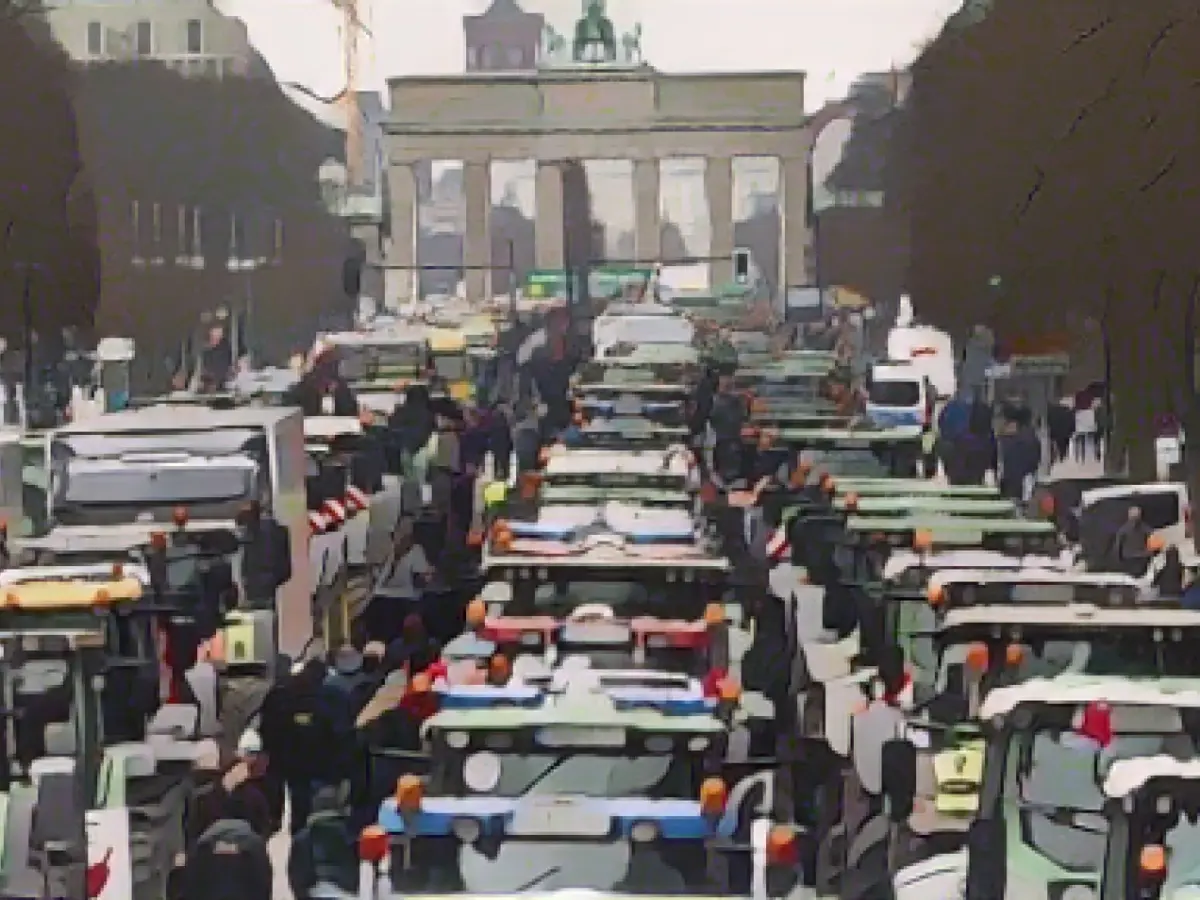Unleashing the anger: Farmers' rallies against tax relief scrapping
Farmers took to the streets in a fury, rallying at the iconic Brandenburg Gate to express their ire against the proposed abolition of tax breaks for agriculture by the federal government. This move, spurred by the Federal Constitutional Court's budget ruling, has ignited a heated debate within the European Union, where other countries manage to subsidize agricultural diesel.
The Green politician and Federal Agriculture Minister, Cem Özdemir, appeared to understand the severity of the situation facing farmers, acknowledging the immense rage behind their appearance in Berlin. "I recognize that you've arrived here, enraged," said Özdemir at the farmers' association rally. He vehemently opposed any cuts so substantial, asserting, "I am not a proponent of these types of cuts."
Despite Özdemir's attempts to empathize, his speech was repeatedly disrupted by whistles and shouts, requiring the calming input of Farmers' President Joachim Rukwied. Rukwied, in an effort to maintain decorum, urged the demonstrators to show respect and heed Özdemir's words. He also condemned derogatory remarks, further stressing the need for constructive dialogue.
Ardently criticizing the combination of savings plans for agricultural diesel and vehicle tax exemptions, Özdemir remarked that this approach would severely disrupt European Union parity. He argued, "This deteriorates the competitive conditions for German farmers, almost overnight." When it comes to agricultural diesel, farmers have no alternative but to rely on heavy machinery, essentially incapable of being converted to electric power. This, in turn, he insisted, must not be placed on farmers as a burden.
Joining the chorus of criticism was the CDU/CSU, who criticized the federal government's perceived indifference to the plight of farmers. CSU General Secretary Martin Huber expressed his displeasure, stating that the government was essentially putting German farmers "in dire straits." This insensitivity and arrogance, according to Huber, was unacceptable. CDU agricultural expert Albert Stegemann weighed in, affirming that both direct austerity measures and their impact on rural areas were reprehensible. He emphasized that Özdemir should unequivocally support the farmers.
A gathering of around 3,000 farmers from various regions across Germany flocked to the protest, bolstered by several hundred tractors. The demonstration at the Brandenburg Gate represented the first clear signal to the "traffic light coalition." Farmers' President Joachim Rukwied, in a defiant tone, noted that "there will be massive resistance from January" if the contentious proposals do not receive a reconsideration in the 2024 budget agreement.
The proposed elimination of the subsidy for agricultural diesel is, according to environmental organization Greenpeace, an acceptable step, given current agricultural and food prices and multifarious other agricultural subsidies. The organization's agricultural expert, Martin Hofstetter, suggested that while sympathetic to farmers, the true cost of the diesel subsidy outweighed its benefits. Hofstetter concluded that the end of the diesel subsidies would not culminate in a catastrophic decline of farms.
Prior to the release of the traffic light plans, the earnings situation in agriculture had remarkably improved, with the average profit of farms surging to a record high of 115,400 euros in the 2022/23 financial year - marking a significant increase of 45% from the previous year.
The 2019 provision of a large demonstration, comprising thousands of farmers from across Germany, took place before the Brandenburg Gate with a convoy of tractors in tow. At that time, farmers marched against the ever-evolving environmental and animal welfare regulations, advocating for a moreintegrated role within the governing process.
Source:
Enrichment Data:
- The proposed elimination of vehicle tax exemptions for agricultural diesel in Germany has sparked significant debate and reactions among farmers and policymakers. Here are the key arguments and reactions:
Arguments Against the Abolition
- Competitiveness and Industry Income:
- Farmers' Protest: German farmers have strongly protested the plan to scrap tax breaks on diesel used by agricultural vehicles. They argue that these tax breaks are essential for maintaining their competitiveness within the European Union, where other countries provide similar reductions.
- Economic Impact: Farmers contend that the abolition of these tax exemptions would significantly increase their operational costs, potentially leading to reduced profitability and competitiveness.
- Environmental Concerns:
- Climate-Damaging Subsidy: Some argue that the diesel subsidy is a climate-damaging measure, and its phase-out is necessary for environmental reasons. However, this perspective is not universally accepted, as many farmers see it as a necessary support for their operations.
Reactions and Concessions
- Government Response:
- Concessions: The German government has made some concessions in response to the protests. The vehicle tax exemption for agricultural and forestry vehicles has been retained, and the cuts in diesel tax breaks are to be phased out over three years.
- Finance Minister’s Statement: Finance Minister Christian Lindner acknowledged the legitimacy of the protests and stated that the delay in cutting the tax breaks buys time to find ways to reduce bureaucracy for farmers and improve their productivity.
- Public Support:
- Public Sympathy: The protests have garnered significant public sympathy, with 73% of the public expressing full or some understanding of the farmers’ demands.
- Broader Dissatisfaction: The protests have also highlighted broader dissatisfaction with agricultural policy and the government in general, reflecting deeper frustrations within the farming community regarding regulations and bureaucratic procedures.
- Farmers’ Frustration:
- Multiple Issues: Farmers argue that their frustration goes beyond the current tax exemption issue. They face numerous regulations and requirements that they believe are overly burdensome and do not account for regional differences in farming practices.
Future Dialogue and Compromise
- Need for Dialogue:
- Sustainable Solutions: Finding a balance between economic viability and environmental sustainability is crucial. A continued dialogue between farmers, policymakers, and environmental groups is essential to address the long-term structural issues facing the agricultural sector.
- Compromise and Cooperation:
- Productive Dialogue: Tobias Schied noted that the protests had led to productive discussions where compromises could be found. This indicates a willingness to engage in dialogue and find sustainable solutions that protect both farmers' livelihoods and the environment.







